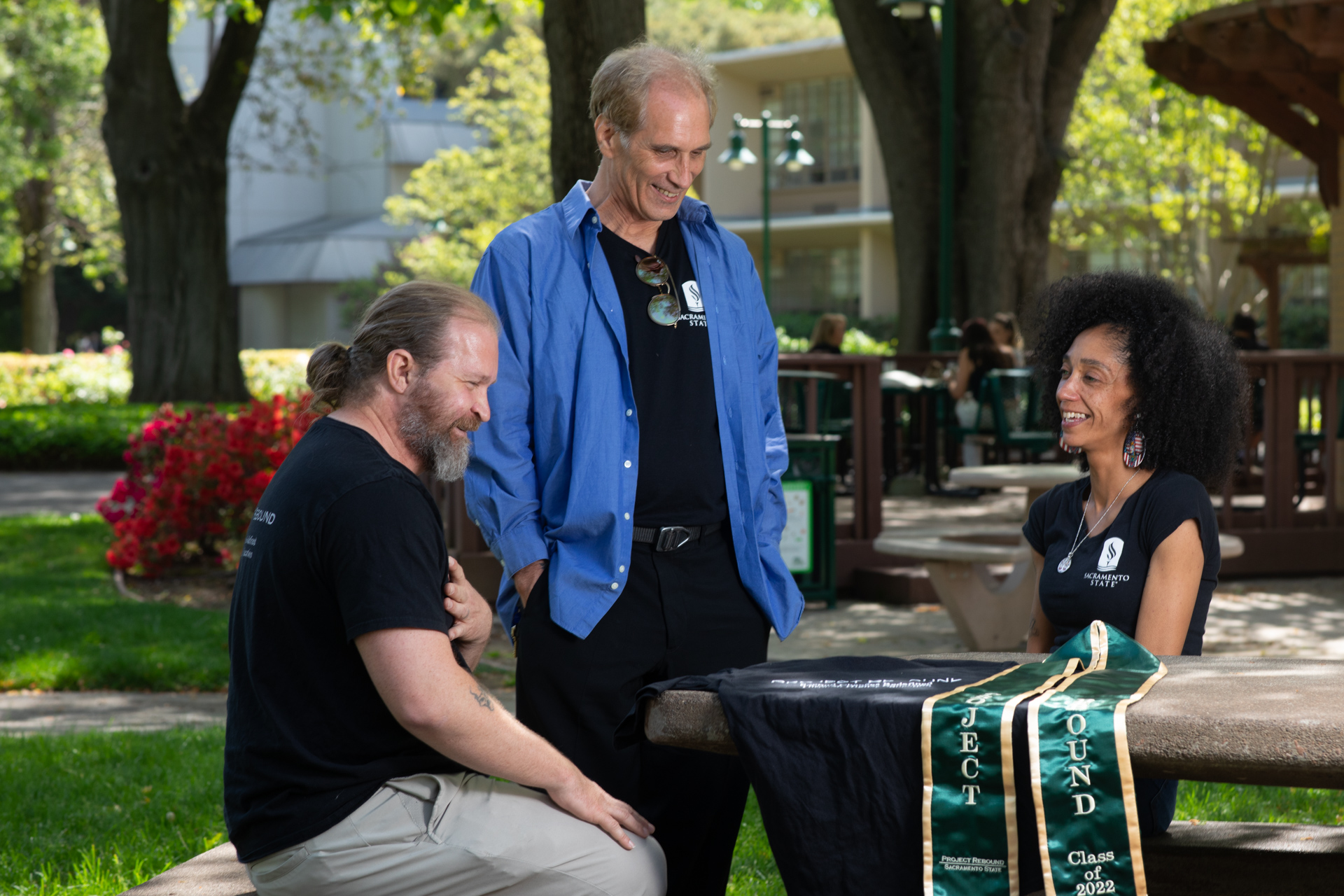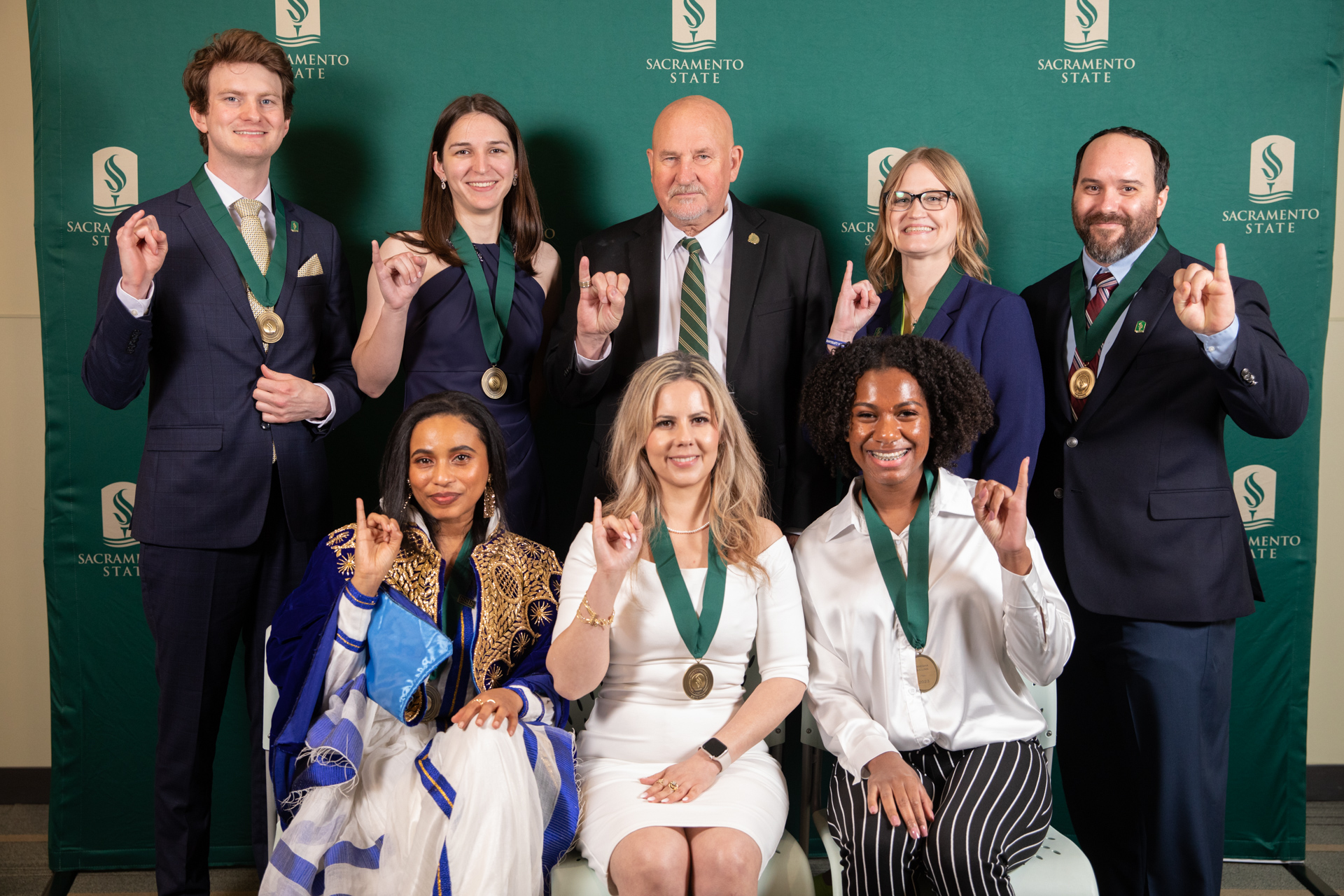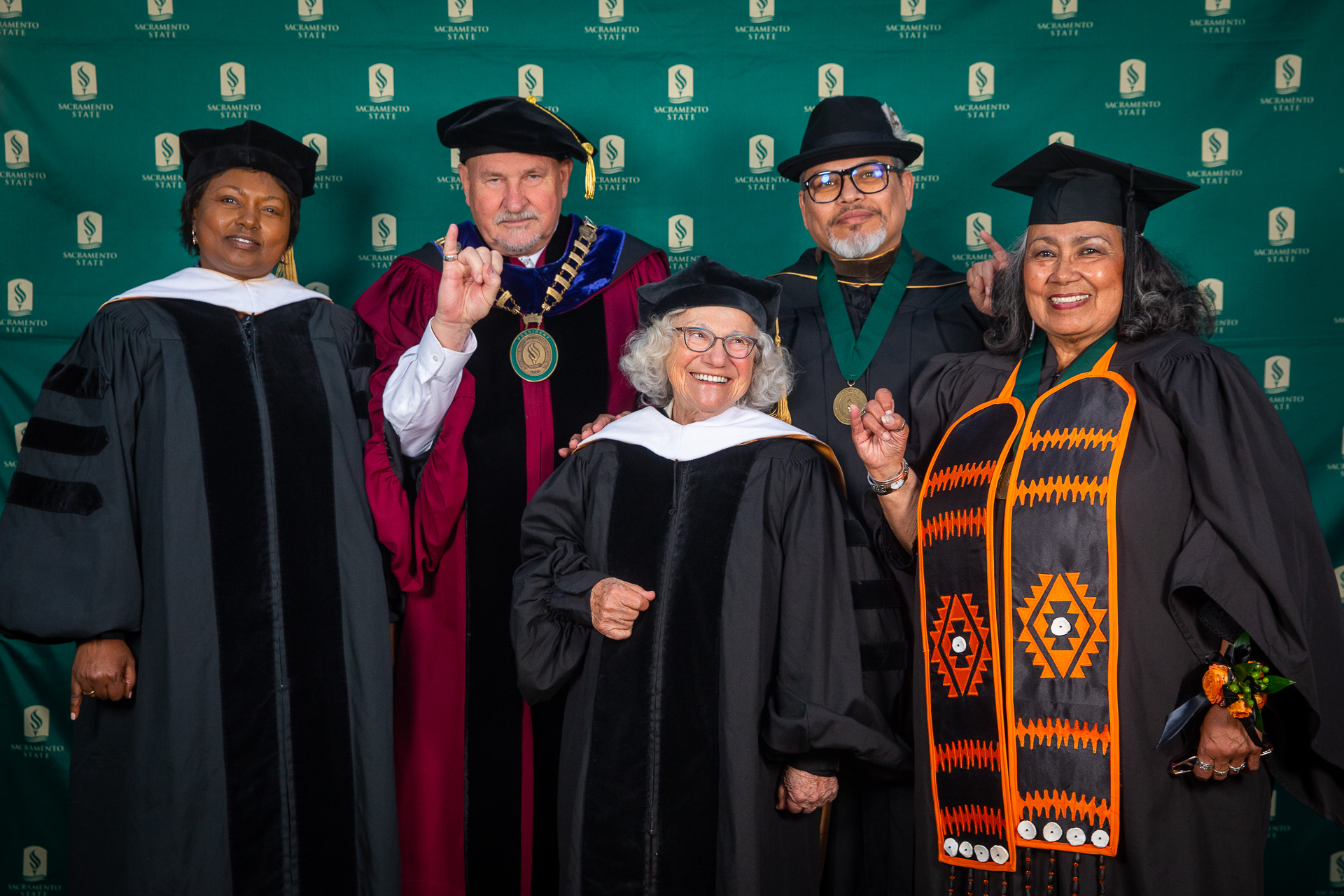Story Content
Graduate student works to improve disability culture, create inclusive spaces and community
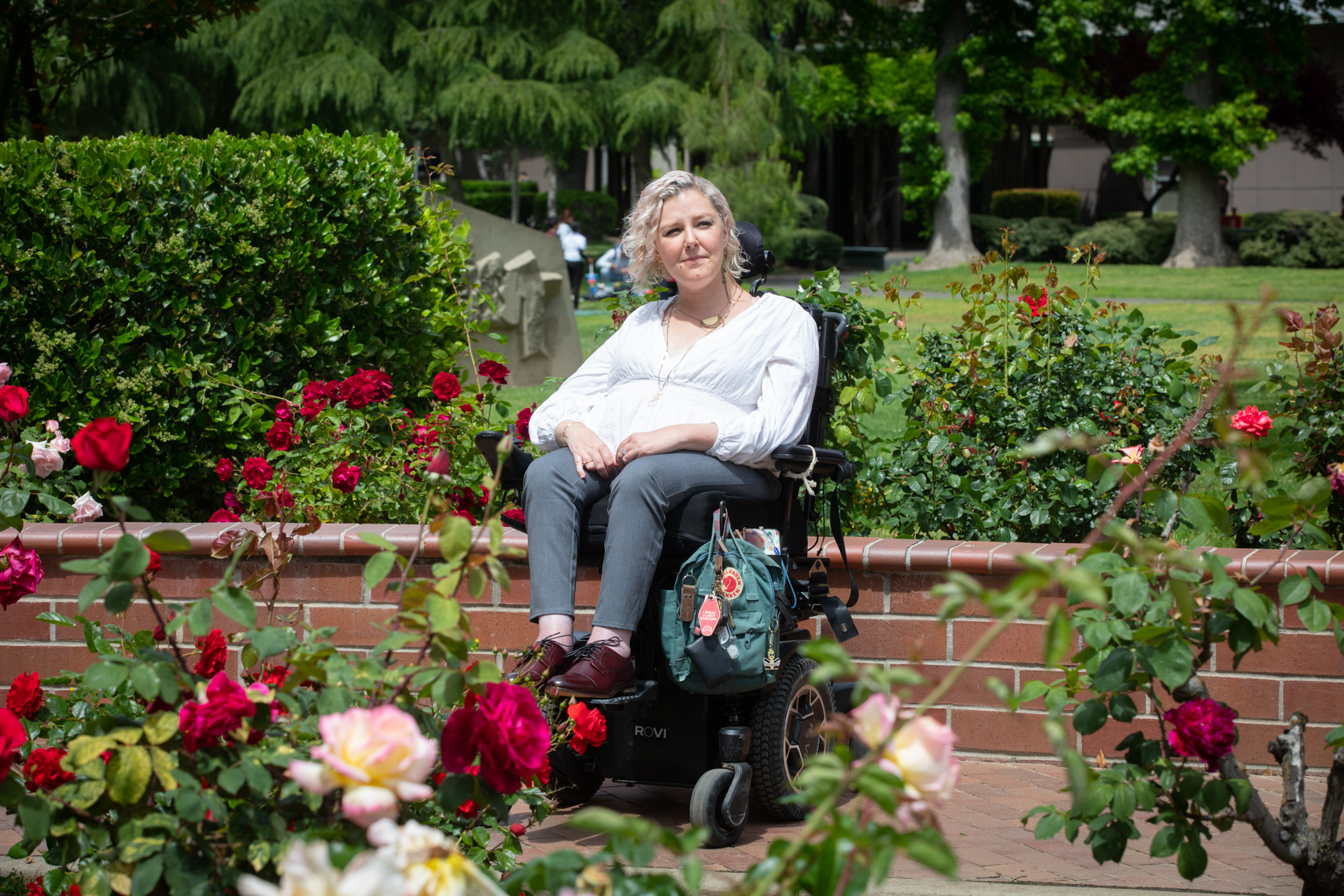
May 15, 2023
Rachel Stewart lives by and has built a career around the phrase “nothing about us, without us” — a longstanding mantra of the disability community.
The saying encompasses the idea that anything directly affecting disabled people should involve input from and collaboration with the disability community. It is the ideal behind everything to which Stewart has dedicated her professional efforts. At Commencement, May 19, Stewart will graduate with her Doctorate in Educational Leadership (Ed.D.).
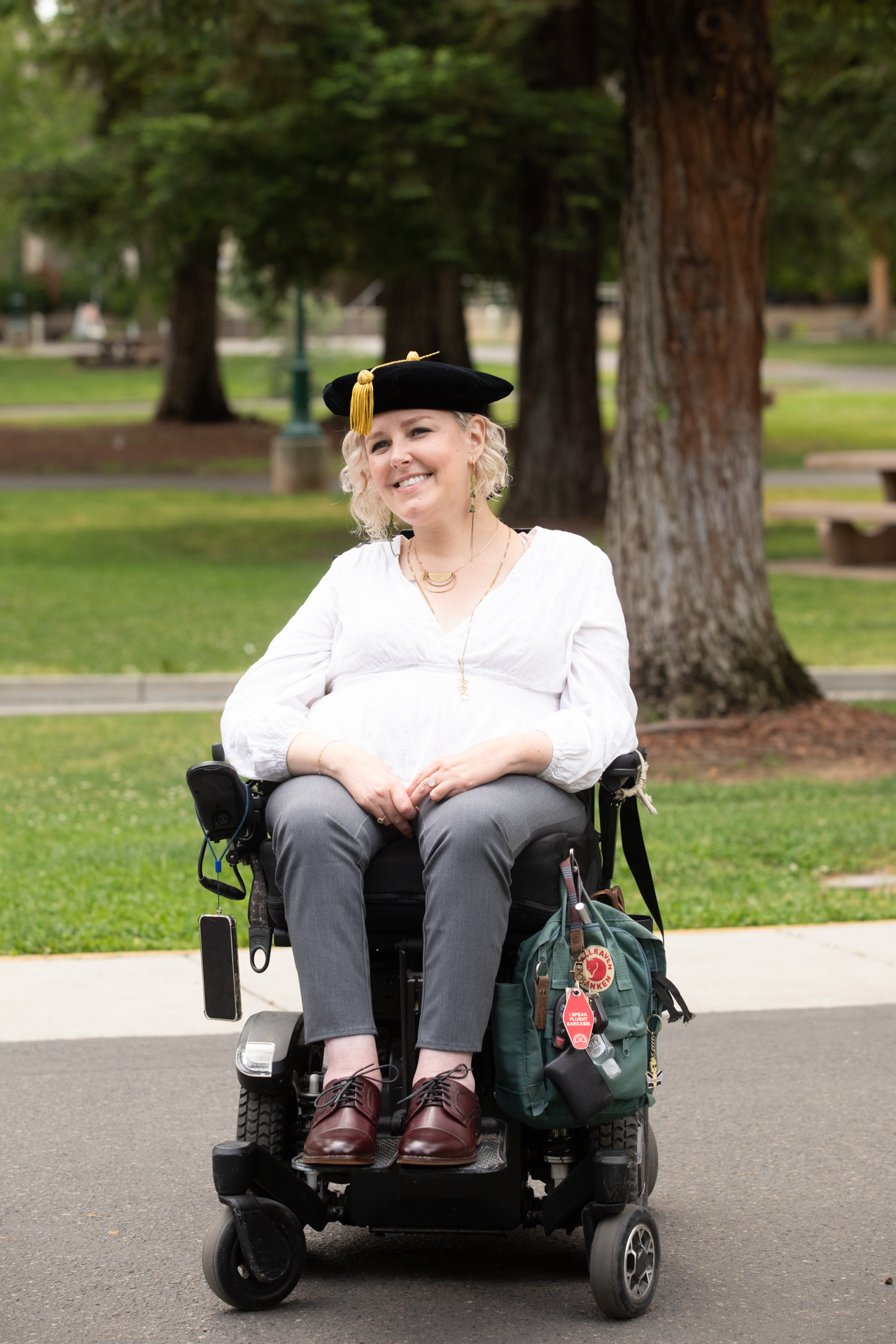
“I cannot wait,” said Stewart, who earned her bachelor’s degree in Psychology from UC Berkeley in 2005 and her master’s in Rehabilitation Counseling from San Diego State University in 2011. “This feels so different. This feels extremely momentous. … There's not a lot of people that get a doctorate.”
Stewart, who grew up in San Bruno, was diagnosed at 18 months old with a type of muscular dystrophy called spinal muscular atrophy. Though the disorder is genetic, no one else in her family had it. By age 5, she was using a wheelchair full time.
“It's really all that I've ever known,” she said. “I think growing up, I didn't really embrace my disability identity. I (had) what I would term ‘internalized ableism,’ because we're acculturated in a society that does not view disability in a very positive light.”
She struggled to build confidence and maintain self-esteem, while learning to understand her place in the world.
“It wasn't until I got to Berkeley, where I was suddenly surrounded by tons of people with disabilities, (it was) like the mothership — people with disabilities landed there,” Stewart said. “I realized that I had a lot more in common with other people with disabilities.”
Stewart is coordinator and counselor for Los Rios Community College District’s WorkAbility III, which assists disabled students in transitioning into employment. She said having a disability and working in the job helps her connect with the program’s participants.
“I do a lot of work helping students that have had similar backgrounds such as myself,” she said. “I think this kind of brings me to this whole idea of ‘nothing about us, without us,’ and if we're designing programs and services for certain populations, those individuals that use those services or use those programs or need them are in leadership positions.”
Stewart wants to help develop disability cultural centers on college and university campuses. Nationwide, approximately 17 active centers exist, and several others are pending or in progress. All started through activism and advocacy by disabled students, Stewart said, and she wants to see a lot more.
“One of the things that I've seen is a lot of students are hungry for community, and they really want to have a safe space where they can go to find belonging, to talk about things that maybe other folks don't understand,” said Stewart, whose dissertation focused on the creation of these centers through the lens of disability critical race theory. “That's where I would really like to figure out a way to bring a disability cultural center, to the Los Rios district or even Sac State.”
Toni Newman, coordinator for Disability Services and Programs for Students at Sacramento City College, is part of the same Sac State Ed.D. cohort as Stewart. Newman, who is this year’s Outstanding Graduate Student Award recipient, hopes to work with Stewart on developing the centers.
“Rachel has been absolutely instrumental in moving us forward in changing how we think and talk about disability,” Newman said. “Her contribution to our campus at City College, her contribution to the Ed.D. program, her contribution to scholarship, her contribution to the disability community, it's huge. We're looking forward to … seeing more from her because of just who she is.”
Though much of her doctoral program occurred during the pandemic and she spent little time on campus, Stewart has high praise for Sac State, saying the community-like nature of the cohort helped her make it through.
"I think that it's important that we also figure out ways to empower and uplift those with disabilities so that their voices can be heard, and then they can have an impact on programs and services." -- Rachel Stewart, Sac State Ed.D. student
“I think it's just really allowed me to grow as a leader, and it's given me the tools that I need as I've had to advocate for my program, and get additional funding and things of that nature,” she said. “So, yeah, it's just been a really awesome experience.”
Elizabeth Morgan, an assistant professor in the Ed.D. program who served as Stewart’s dissertation chair, said Stewart is not only a phenomenal person but also an excellent student.
“She never gave up, and she didn't waver in her commitment,” Morgan said. “She was very clear about the type of difference that she wants to make and, specifically, she really wants to be a part of changing the culture when it comes to understanding disability.”
Stewart’s ultimate goal is to utilize her knowledge and abilities to help others with disabilities advocate for themselves and to ensure the approach to helping the disability community is inclusive.
“I think, historically, too often, professionals have been placed in the role of helping people with disabilities," she said. "I think that it's important that we also figure out ways to empower and uplift those with disabilities so that their voices can be heard, and then they can have an impact on programs and services.”
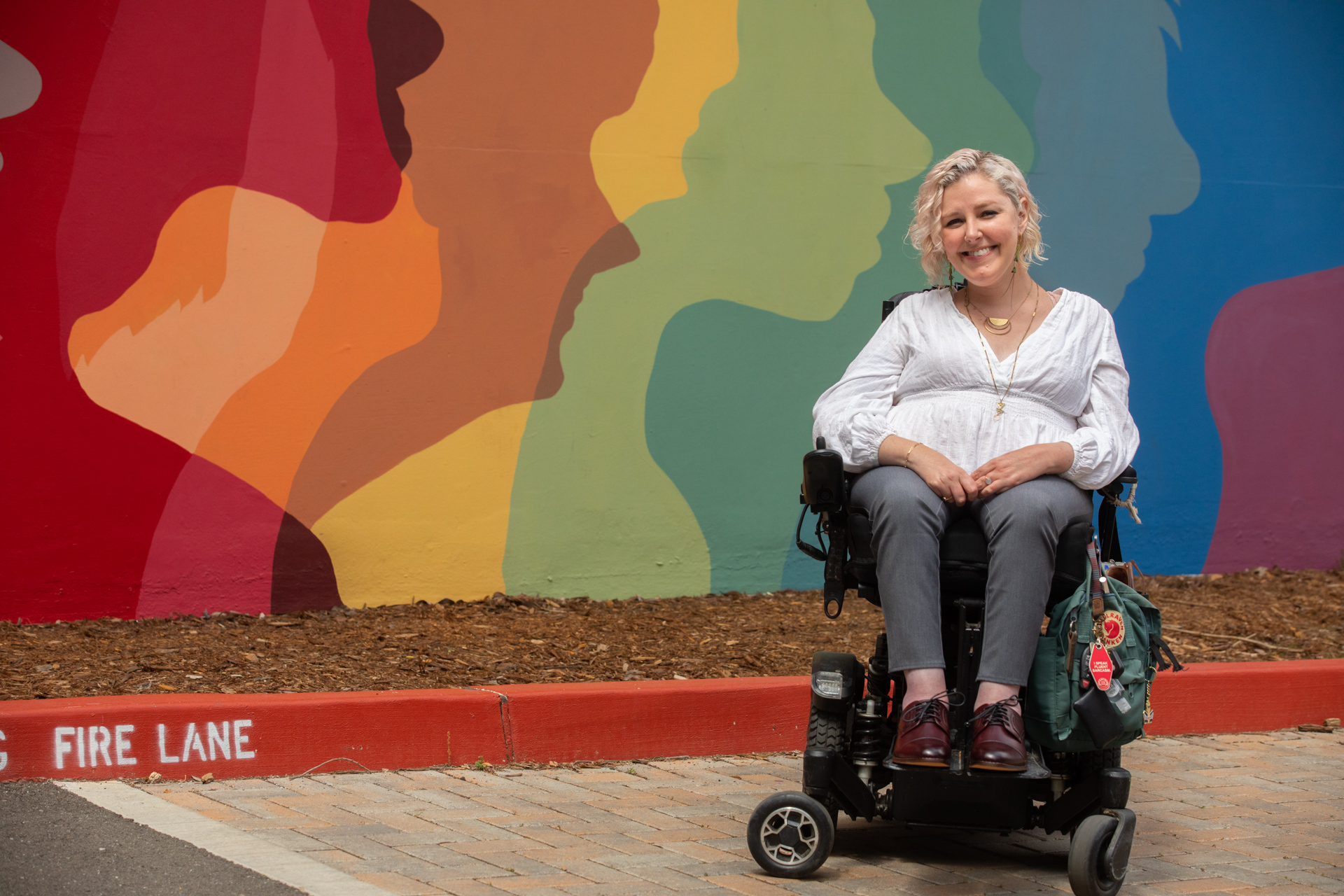
Media Resources
Faculty/Staff Resources
Looking for a Faculty Expert?
Contact University Communications
(916) 217-8366
communications@csus.edu
